- Home
- Deborah Smith
The Kitchen Charmer Page 2
The Kitchen Charmer Read online
Page 2
Macy and Alberta, the farm’s owners and head of Rainbow Goddess Refuge, couldn’t hire trustworthy outside help fast enough to take up the slack. Even with the financial support from the MacBrides, Cathy Deen Mitternich and Jay Wakefield, we were under siege. The cuts in social services. The rise of extremist groups that wanted women at home, barefoot and pregnant. Bruised.
And the wars.
War came first. War always comes first, when people are schooled to hate and fear one another. We had troops in parts of the world that would have been unthinkable even a year ago. Not just stationed there, but fighting new battles in wars that no one understood.
The shortages at home helped pay for them. Cutbacks in social services. Medicine, food, public education, the arts. Riots occurred almost every month in the biggest cities. Crime had skyrocketed.
Here in the Cove, people did what they had done for centuries in these Appalachians. They pulled in close, like cattle in a storm, heads together, backs to the enemy.
Only looking into each other’s worried eyes, and kicking, hard, blindly, whenever anyone new or strange or unsettling came near.
They believed the leaders who held the golden keys. The jobs, the power, the promises.
In Jefferson County, North Carolina, home of the county seat, Turtleville, the Cove and the Crossroads Café, just over four thousand tough, hardworking people were scattered across ridges and hollows where memories went to be forgotten.
Most of them earned their living growing fryer chickens.
All of them worked—either under grower contracts or in the processing plants, for Monzell Poultry.
Howard Monzell owned them.
His son-in-law, Chief Deputy Sheriff Kern Burkett, wanted to own me.
Kandahar province, Afghanistan
BLOOD-RED BEER gushed over the rubble. The burned oatmeal stink of over-cooked hops and bitter ale mixed with the mushroom scent of the dust and the acrid flavor of broken concrete. I tasted the mortar hit. Burning plastic and ammonia, like pissing on a fire full of milk jugs.
Now the bloody beer flooded around my boots and began to fill what was left of the tiny house. It rose fast; rising above my knees as I squatted beside the grieving mother and the bodies of her children. She and they disappeared in the crimson brew. So did I, taking one last breath as the raw swallow of death and guilt filled my lungs.
“Captain? We’ve confirmed that Sarbanri was here when you ordered the attack. Someone tipped him off.”
I looked up at my translator, Sergeant Inez Sanchez. Riley’s replacement. Texas twang, like Riley’s. Tequila and pulled pork barbecue and hand-tooled cowboy boots. Bright pink lipstick behind her face shield. All heart and duty.
Tipped him off. I shoved my helmet backed and cursed silently.
“You had no way of knowing, Captain. He used this family as a shield.”
I have a way of knowing. Why did it fail me, this time?
Suddenly the woman made a high-pitched keening sound—not the ululation of lips and tongue but a sheer, piercing, singsong shriek that gutted me. Her eyes, dark and glazed, shifted and jerked, focusing on me, cradling her dead daughters, their blood soaking her burka.
Words stuck in my throat.
I have sisters, I wanted to say. I don’t hurt women and children. I protect them. My whole life is about being a man who takes care of others. I failed once. I can’t fuck up again.
Sanchez nudged my shoulder with her knee. Riley had filled her in on my little secret. “Cap,” she said gruffly. “A bruja is still just a poor sinner waiting for God’s Word. My abuelita could tell you who would have babies the next year and when to plant tomatoes for the best harvest. One hundred percent accuracy. But she couldn’t predict the addiction that killed four of my uncles.”
“I’ve called it right so many times. But this time . . . ”
“That’s why we trust you, Captain. You’re not perfect, but you’re sure as hell talking to angels.”
The woman’s voice became a sob, then freed itself to fire angry words at me. Sanchez stepped closer, listening, her face as still as dark granite. She looked only at the woman, and I could see the strain in her eyes, how rigidly she kept them trained away from the bodies.
My mouth filled with blood. “Translate,” I ordered. I knew enough Pashto to catch some of the words.
Sanchez blew out a breath. “She says she’s put a curse on your soul. She will take your spirit away.”
The woman’s song rose to an unearthly aieeeee that echoed off the crumbled block walls. I took off my helmet and dropped it in the sand and blood between my boots. How must I have looked to her, a red-haired, ruddy-skinned killer from the other side of the world? I wanted to tell her I came from dirt-poor Scots-Irish immigrants who built cabins in wild southern mountains covered in blue-green forests, a place of tough but compassionate people who did not send their men to kill the innocent.
I stood. “Let the medics know she has something wrong here.” I made a rubbing motion below my navel. “She needs antibiotics.”
Sanchez nodded. “Probably a UTI. I’ll make it sound like she told me herself.”
“CAPTAIN, YOU’RE TO stand down where Sarbanri is concerned. He’s above your pay grade.”
“He’s murdering villagers.”
“Not your problem, Captain. Don’t rock the boat. You’ve got seventeen years in; you’ve got a file full of pretty commendations to offset your crazy shit. You got a month’s leave coming in a few months. Enjoy your career.”
“If we’re not here to fix things, why are we here at all?”
“Hell if I know. Just follow orders. Let others worry about the big picture.”
I couldn’t do that. I saw the big picture, I smelled it. I woke sometimes with its blood all over me and the pitiful bawls of calves begging not to die.
The slaughterhouse smell of psychic death. Liver. It came to me as well as Tal and Gabs. The one kitchen charm that spoke to all of us.
He’s always goin’ to be with you, Gus.
Big hands on my shoulders. My cop uncles took over for Dad, that day. Sergeant Charlie Osgood led the way. A dozen others standing nearby. Their wives tried to comfort Gabby, who stood rigidly, guarding Tal, who sat under a hospital gurney with her back turned to us all. Gabby was ten. Tal was only five years old. I was twelve.
“Gus, he wouldn’t want you to do this. Your mama don’t expect it, either.”
“I promised him, Uncle Charlie. I’d be the man of the family, if anything ever happened. It’s my job.”
I walked through the doors they opened, and through other doors, and into bright lights that made it hard to think about what was behind the white screen in a room with tile on the floor you could wash down with a hose.
And then Mama stepped in front of me. She looked a thousand years old, not thirty-two. Apple pie and the essence of dad’s brew-man soul swirled around us. She took my hand and pressed a silver crochet hook into my palm. All the filigree had worn down where MacBrides had gripped the metal since time began, leaving tendrils etched in the shadows where their fingers once lay. The hook was bent at a terrible angle. I started shaking inside. Dad always carried it in a pocket of his uniform. He crocheted and knitted, no matter who laughed at him. He taught me how.
“It’s yours, now,” Mama whispered. “We’ll get it repaired.”
Nothing can fix it. Nothing can fix what’s on the other side of that screen. Or inside me.
“I want to see him,” I said.
“He’s not here,” Mama whispered. “You know that.”
“I smell his cigar. I smell beer, and barbecued pork.”
She took my face between her hands. “Of course he’s with us that way. He’s everywhere we’ll ever be, forever. I’ve been talking to him, and he’s not in pain, and he’s
not afraid, and he’s not worried about us. He knows we’ll be okay. That’s the blessing of the other realms. That’s the wisdom and the wonder of passing over.”
I nodded, tears rolling off my face and down into her palms.
Mama and I held hands and walked over to view his body. Charlie and my other cop-uncles had tried to warn me. Dad had been hit by a tractor-trailer while working an accident site on an icy road north of Asheville. It was bad.
He was broken in a lot of ways.
So was I, from then on.
2
I WAS UNDERGROUND the first time I saw Gus. Showing his sister the concrete root cellar at Rainbow Goddess. Telling Tal, who’d come to the farm in search of Dr. Firth, her handsome Scottish veterinarian, how much I’d like to live in the cellar, alone.
“The root cellar is built like a big war bunker. It has air vents and a toilet and a secret escape tunnel hidden among the shelves full of jellies and canned veggies. It’s very cozy, actually.”
Tal handed me her phone. “Let’s talk about something positive. Here’s my favorite picture of my big brother.”
Good bread with a hard crust and soft center.
A pickle grown in tough red clay but so sweet that even a salt brine can’t sour it.
That’s how Tal and Gabby MacBride had described their brother Gus to me. I didn’t want to know how Tal and Gabby saw me, what flavor, what scent. I had always wanted sisters. Giant, red-headed sisters who towered over little five-six blonde me.
“Let us tell Gus about your background, Lucy. He’s trained to deal with soldiers who’ve been hurt in battle. He’ll understand. You’re a wounded warrior. It’s no different.”
“It’s very different.”
Gus MacBride sat cross-legged on some barren, beautiful Afghani ridge, in front of a grill and a hot pile of embers. On the grill sat a large iron skillet full of qabli palaw, a traditional Afghan dish made with rice, raisins, carrots and lamb. He was dressed in his desert camo but wore an Afghan hat and fringed scarf. One hand posed to slide a spatula into the pan.
He gazed straight into the camera with a somber smile, his face handsome, square-jawed, and ruddy from the sun and wind. The hat perched jauntily on his bleached crew cut and shadowed his green eyes. He looked big and confident and . . .
Swarms of honey bees surrounded me. Millions. A cloud of soundless yellow and brown, their small wings feathering my face and hands. I smelled the aroma of the honey they made. They merged into a soft weave, a cushioned blanket, around me. Swaddled in warmth, I felt safe and hidden. A flavor blossomed on my tongue. Wheat, corn, more honey. Caramel and berries and chocolate.
Cool and hot. It traveled down my throat, filled my stomach with heat, and bloomed in every direction.
Every. Direction.
“Lucy. Lucy?”
I blinked. Tal was bent over me. I had settled gently onto the floor, dazed. I cradled her phone—the image of her brother—to my chest. I sucked down deep breaths. “Does he . . . does he know he had this effect on me?”
“Well, we get psychic hugs from him, if that’s what you felt.” She studied me, her eyes crinkling. “But . . . I’m betting you got a whole lot more than a brotherly hug.”
“Does he know?” My voice rose. “Can he see me? ‘Who’s that odd woman having a mental orgasm in the cellar?’”
She hunkered down beside me. “No! That’s now it works, with us. He may be out in the Afghan hills somewhere wondering who tapped his keg, but he can’t find you if you don’t want him to.”
“I don’t. It’s embarrassing.”
“You pulled those sensations off his vibes. You slipped a straw into his milkshake and . . .”
“Please, no more metaphors.”
She sat down and put an arm around me. “Look, every charmer is different. You, for example, get your sensations as fiber textures. That’s your main circuit, so to speak. I use pickles—sweet and sour, brine, spice. Gabby uses bread, flour, sugar.”
“What does your brother use?”
“Not to pry, but . . . tell me what you tasted.”
“Cold, hot, sweet, fruit, chocolate, roasted, thick, smooth, hard . . .” I halted. Him. I tasted him. “He’s your brother. He seems . . . likable.”
Tal bit her lower lip to keep from smiling. “Look, there’s the ordinary ways to taste flavors and aromas. Sniff with your nose. Your brain gets the signal. Taste with your mouth and tongue. Your brain merges the feel and the scent. It sorts out what’s bitter and what’s sweet. Salty, sour. It even has a special talent for meat and broth. Researchers call that one umami. A Japanese word. It means savory.”
Gus is all of the above. Especially savory. I kept that to myself. “There’s more to it than taste buds and brain chemistry when charmers are involved.”
She nodded, gesturing at the ether somewhere above us. We connect to other . . . realms. Just like you do, only without petting a sheep or a shawl.”
“Gus connected with me.”
“You connected with Gus. Charmer versus Charmer produces some unpredictable effects.”
“As long as he doesn’t know he reduced me to a puddle of . . . beer. That’s what it was. Beer!”
A huge smile lit Tal’s face. “You found him, all right. He’s a brewer. A beer man. Just like our dad was.”
I touched the photo. Suddenly I began babbling like a girl with a new crush. “The hat is a pakol. It’s made of wool. It’s very baggy until you put it on and roll up the sides. Then it looks a little like a beret with a fat rim. The scarf is a dismaal. Thin, probably made of cotton. Woven on looms. The Afghans are exquisite weavers. Especially the women. Afghan rugs are classics.”
“So, what kind of wool is Gus?”
“A good one. Strong and special.”
“What kind of wool are you, by the way?”
I kept looking at Gus’s picture. The giddy moment faded. Reality crept back, cold and tasteless. “Angora rabbit.”
“Hey, that’s nice! Luxurious, fluffy . . .”
“Helpless and an easy catch for predators.”
I gave her phone back.
“I’ll see you tomorrow at the Crossroads,” she ordered. “I’ve got a plan.”
I COULD WALK the two miles from the farm to the Crossroads Café, going through the deep forest of the abandoned bike village of Free Wheeler and past Gear House, where Tal and Doug had moved in together, with Tal’s daughter, Eve. The café was scented with pine and cinnamon, and there were lights and trees in every dining room. Out by the pasture fence, under one of the big oak trees, Santa Joe Whittlespoon’s famous chainsawed log Nativity scene gleamed with silver garland.
The elder brother of our county sheriff, Santa Joe was the biggest weed grower in western North Carolina.
His Baby Jesus looked like a piece of knotty pine.
The Crossroads Quilting Society met at the café every Wednesday afternoon to sew and gossip and do good for the community. I came to sew and listen and practice not having panic attacks in public—at least not noticeable ones.
Today we were finishing lap quilts for the local churches to hand out as part of their Christmas Share program for needy families. In years past, their numbers hovered around fifty. Now there were three hundred. Food stamps were gone. The free clinic wasn’t free, anymore. Most of the kids who had gotten subsidized school lunches now depended on donations.
“Lucy? Can I get you a tissue?” Cleo McKellan ordered. “If you were a little girl, I’d smear your fingertips with cayenne pepper. Stop chewing your nails.” A large photo pendant clanked against the heart and cherub charms on the back strap of her hat. Trey looked out at us—not the shaggy woodsman with bitter eyes and a prosthetic leg, but a handsome marine in full dress uniform, ready to serve God, country, and family . . . before an IED took his left leg
above the knee.
I flinched at the embarrassment: a drop of blood drying on my right forefinger, where I’d ripped the nail tip off while listening to the group discuss the dark new world of deported immigrants, KKK rallies, foreclosures, and brutal contract terms for the many chicken farmers who depended on Monzell Poultry for their incomes.
Tal handed me a tissue while glaring at Delta’s right-hand woman. Cleo, Delta’s sister-in-law, and Cleo’s husband, Bubba, had just come home from a hospital in Asheville. Blood pressure problems. Both he and Pike had been struggling with it.
“Did you hear who had to file for bankruptcy? Lost her chicken house and both tractors. Monzell saw something she said about him on Facebook. Cancelled her fryer contract.”
“They say he’s got secret Mexicans working for him.”
“Not at the Daw Ridge plant. There’s not a brown face in that place. Too many Goggers on the factory lines. Monzell sends the Mexicans to his plants in Arkansas and Tennessee. He wants his Goggers right under his wing, where he can keep brainwashing them.”
“Beth, what in the world is a Gogger?”
“Guardians.”
“Oh. When did those knuckledraggers start calling themselves Goggers?”
“G.O.G. Guardians. Of. God. We made up the name from that.”
“Oh.”
“Big ol’ mouthy idiots with Nazi tattoos. They hate Jews, Muslims, Democrats, and colored people.”
Mabel, whose family had immigrated to North Carolina from Cuba when she was a child, peered over her glasses at the rest. “Y’all, please. Don’t say colored people. Say people of color.”
Cleo slammed a package on the table. “As long as they’re Christians, I don’t care if they’re brown, white, pink or purple. God-fearing Americans. We need more discipline. We need more patriotism. My son is right when he tells y’all we have a lot to be afraid of. He saw it in Iraq. He’s seen what those people want to do to us.”
Cleo was a tough wool. Silence gathered. She was devoted to Delta and the café. She was the grieving mother of Trey, a wounded veteran of Iraq who had vanished after returning home.

 Legends
Legends Hold on Tight
Hold on Tight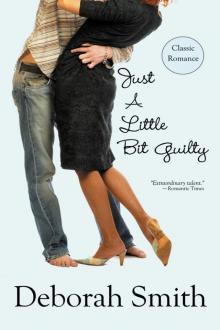 Just a Little Bit Guilty
Just a Little Bit Guilty The Beloved Woman
The Beloved Woman Alice At Heart
Alice At Heart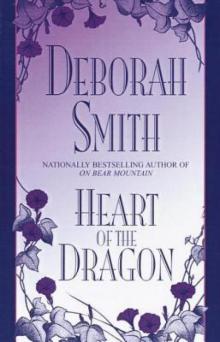 Heart of the Dragon
Heart of the Dragon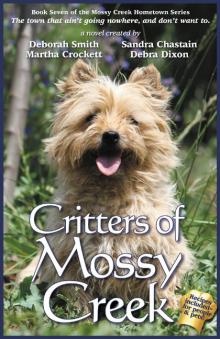 Critters of Mossy Creek
Critters of Mossy Creek Diary of a Radical Mermaid
Diary of a Radical Mermaid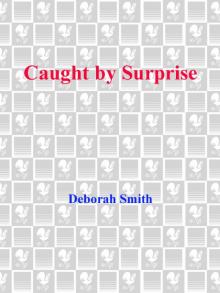 Caught by Surprise
Caught by Surprise Stranger in Camelot
Stranger in Camelot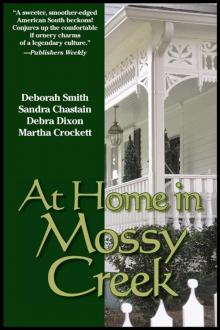 At Home in Mossy Creek
At Home in Mossy Creek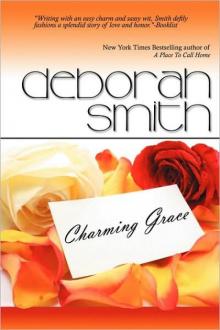 Charming Grace
Charming Grace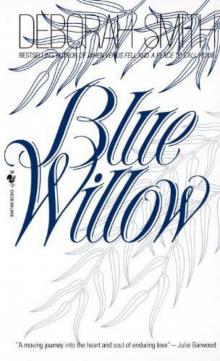 Blue Willow
Blue Willow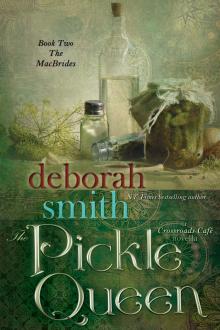 The Pickle Queen: A Crossroads Café Novella
The Pickle Queen: A Crossroads Café Novella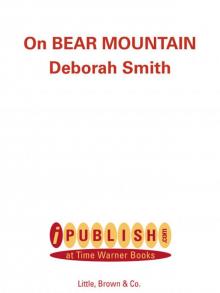 On Bear Mountain
On Bear Mountain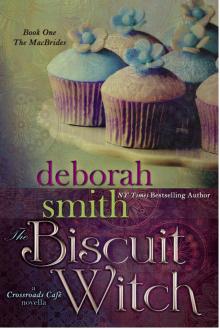 The Biscuit Witch
The Biscuit Witch Sara's Surprise
Sara's Surprise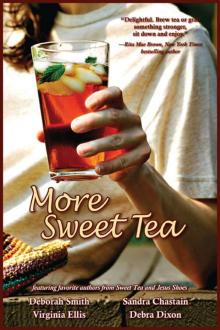 More Sweet Tea
More Sweet Tea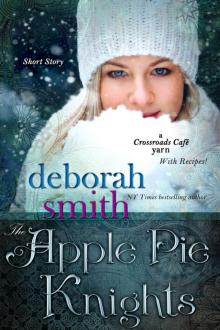 The Apple Pie Knights
The Apple Pie Knights The Silver Fox and the Red-Hot Dove
The Silver Fox and the Red-Hot Dove Sweet Hush
Sweet Hush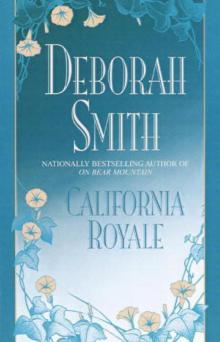 California Royale
California Royale Hot Touch
Hot Touch Miracle
Miracle The Stone Flower Garden
The Stone Flower Garden A Place to Call Home
A Place to Call Home Silk and Stone
Silk and Stone Honey and Smoke
Honey and Smoke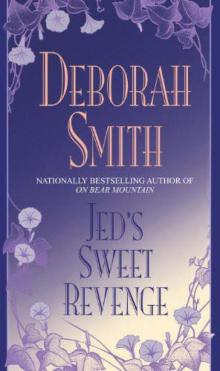 Jed's Sweet Revenge
Jed's Sweet Revenge Silver Fox and Red Hot Dove
Silver Fox and Red Hot Dove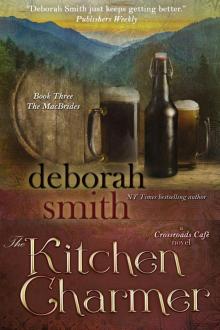 The Kitchen Charmer
The Kitchen Charmer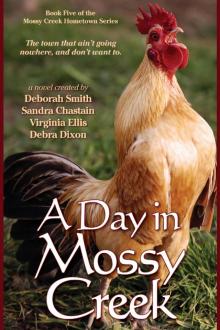 A Day in Mossy Creek
A Day in Mossy Creek Never Let Go
Never Let Go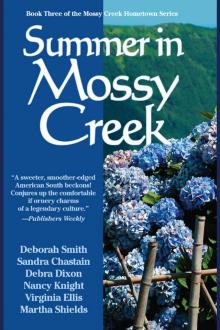 Summer in Mossy Creek
Summer in Mossy Creek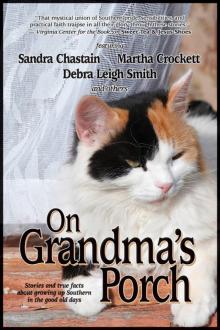 On Grandma's Porch
On Grandma's Porch The Crossroads Cafe
The Crossroads Cafe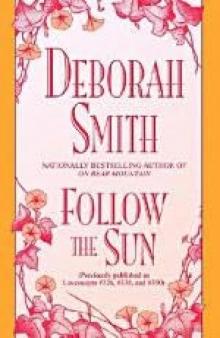 Follow the Sun
Follow the Sun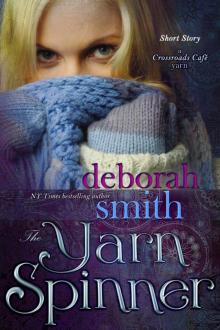 The Yarn Spinner
The Yarn Spinner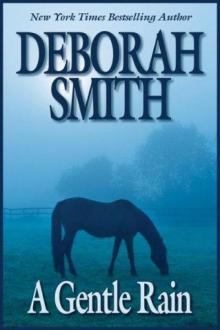 A Gentle Rain
A Gentle Rain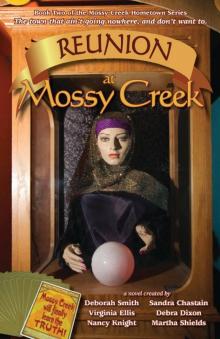 Reunion at Mossy Creek
Reunion at Mossy Creek